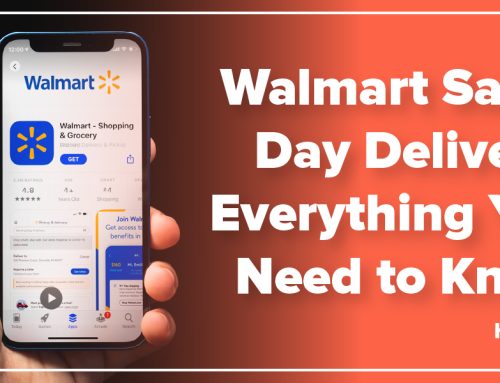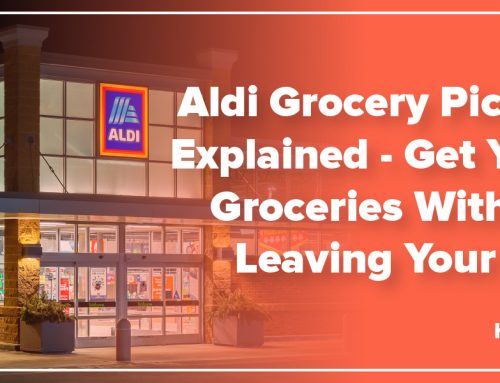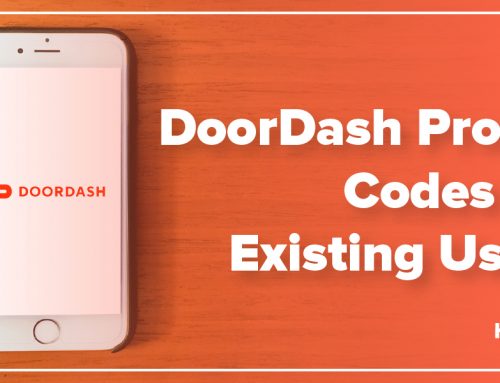Unless you’ve spent the last decade locked inside your closet, you must’ve heard about the growth of the gig economy. But while the term “gig” is relatively new, the idea behind it has been around for quite some time now. That’s because a gig worker is just another name for an independent contractor. In other words – a freelancer.
Now, you’ve probably seen numerous articles or news indicating that becoming a gig worker comes with many advantages. This, plus the constantly growing number of freelance workers, might’ve made you think about whether you should try and join the gig economy yourself. If that’s the case, this guide will provide you with all the information you need to make that decision.
Below, you’ll find a thorough explanation of what the gig economy and a gig worker are. We’ll also show you what you’ll need to become a freelance worker, along with the pros and cons coming with this career path. Read on, and see for yourself whether freelance work is right for you.
Gig Economy Explained
Let’s start by defining the gig economy first. In a nutshell, it’s a free market system based on temporary and freelance jobs. Companies hire independent contractors on-demand, offering short-term and flexible contracts, usually via an online platform. Full-time jobs aren’t a part of this market, hence the name “gig,” referring to the musicians’ jargon and describing a job that lasts for a specified period.
As a result, companies gain access to a cheaper, skill-based, and more efficient workforce, which is one of the primary reasons behind the gig economy’s growth in the past few years. Before the pandemic, there were around 57.3 million gig workers in the US, meaning they constituted approximately 36% of the US labor force (Statista). This growth was disrupted by COVID-19, with 52% of temporary workers losing their job due to the crisis.
Still, the gig workforce is only expected to grow from now. It is estimated that by 2023, 52% of US workers will either be gig workers or have been self-employed at some point in their career (MBO Partners).
Definition of a Gig Worker
In essence, gig workers can also be referred to as independent contractors or freelancers (the term “contingent workers” is also used). These three terms are used interchangeably and mean the same thing – a person who does short-term contract work for one or more clients. Such jobs are called gigs.
The term of the contract is not the only thing that distinguishes gig workers from employees. Besides working short-term, gig economy workers don’t receive any employee benefits, retirement structures, or and don’t have their health insurance covered. They also aren’t eligible to have their taxes automatically withheld, which means they have to pay higher taxes at the end of each year.
As for finding work, gig workers typically use apps and online platforms where businesses post their need for specific jobs. This way, they can find a gig worker ideally suited for the position based on their skill set, experience, and minimum wage. In other words, a gig worker is defined as a person hired to perform a specific job (gig) in a set time.
Different Types of Gig Workers
Generally speaking, the gig economy opens numerous possibilities for contingent workers. Although primarily associated with tech companies, many gig workers work in other fields. The most common types of gig workers include:
- Ride-sharing drivers (Uber, Bolt, etc.)
- Photographers
- Content writers
- Tutors
- Photographers
- Event planners
- Graphic designers
- Developers
- Marketers
- And many more…
There’s also a specific gig worker classification based on the contract gig workers are hired, their experience, and the type of services they offer. That being said, when can single out freelancers, marketplace workers, self-employed workers, and online workers:
- Freelancers: A freelance worker usually refers to a contingent worker who provides specialized services, such as programming, writing, graphic design.
- Marketplace workers: Marketplace workers secure their employment through a dedicated gig platform. In other words, they are individuals who seek jobs rather than wait for someone to contact them.
- Self-employed: Although a person who has their own business isn’t technically referred to as a gig worker, any independent work can be considered self-employment. With this in mind, self-employed workers are indeed a part of the gig economy.
- Online: Online gig workers are typically people who search for their gigs online and then perform them remotely using their computers.
Some of the top gig services for drivers to sign up and earn with are:
How Much Can You Earn?
The salary you can expect for your services depend on the type of work you offer. In general, the more technically advanced the work, the more money you can earn. For instance, if you are a computer programmer gig worker, you should be able to make more than an average employed individual, as you’ll be able to set your own prices and work as many jobs as you want.
However, that’s not always the case. Keep in mind that a fair share of gig workers are ride-sharing drivers, work in food delivery, or offer handyman services. Their salaries aren’t as impressive as those who provide more advanced services.
As for the exact numbers, the average yearly gig worker’s salary in the US is $33,453 (Glassdoor). On the other hand, the average annual wage for a regular employee was $51,168 by the end of 2020 (BLS). This indicates that an average gig worker earns less than an employed individual. On the other hand, according to the study published Upwork (Freelance Forward 2020), 65% of independent contractors claim to earn more than when working for an employer.
Conclusion? As said, everything depends on the type of work you do. If your skillset is in higher demand, you should be able to exceed your earnings when employed. Be sure to take this into consideration before deciding on becoming a gig worker.
Pros and Cons of Becoming a Gig Worker
Now that we have the basics out of the way, we can focus on the primary reason you’re reading this article – the advantages and disadvantages coming with being an independent contractor. Considering them is a vital step in deciding whether gig work is the right career path to take.
Advantages
Let’s start by listing the most significant benefits gig workers can enjoy:
- Flexibility: It’s probably the first thing that comes to mind when talking about gig work. As a gig worker, you can work wherever you want and during hours that suit you best. This way, you can plan your work so that it doesn’t interfere with your private life.
- Freedom: Gig workers don’t need to deal with a boss monitoring their every move. No one can track your hours, approve your vacation time, or micromanage you. You’ll be able to do the task the way you please. The only thing you’re responsible for is the quality of your work and meeting the deadline.
- The ability to choose your gigs: A great thing about being a gig worker is that you can freely choose the project you want to work on. And since there’s no boss to thrust tasks upon you, it ensures your work remains fresh and exciting.
- A bigger salary: We’ve already discussed that the majority of gig workers in the US claim they earn more by doing gigs rather than working on an employee contract. And while that’s not always the case, some freelance jobs do come with relatively lucrative pays.
Disadvantages
While there are many pros of working in the gig economy, there are also several downsides that you need to think about before you quit your job in search of a fresh start:
- No benefits: First and foremost, by becoming a gig worker you say goodbye to all your full-time employee benefits. Gig workers are also not eligible for unemployment benefits, paid family leave, or paid sick leave. They also need to cover health insurance on their own. The same goes for retirement.
- Self-employment taxes: One of the biggest challenges for gig workers is the necessity to cover their taxes, such as Social Security or FICA. As a standard employee, you wouldn’t need to worry about those, as they are covered by employers.
- Searching for gigs: To earn money, you’ll need to find yourself a gig. This can be more challenging than you might think, as there are many gig workers out there competing for every available job. That being said, if you don’t have enough determination and confidence, you might end up being jobless more often than desired.
- No social interactions: Although not the most significant disadvantage, gig workers typically work alone without interacting much with other people. This can make your career as an independent contractor a bit lonesome.
How to Become a Freelancer?
Wanting to become a gig worker is one thing. Getting your first independent contracting work, though, is a different story. If you want to make some money out of your freelance work, you’ll need to take the extra mile and take several factors into consideration. Let’s take a look at some of the useful tips any aspiring gig worker should follow:
- Be aware of your skills: Take advantage of your skills to land more lucrative jobs, such as photography, programming, or graphic design.
- Establish routines: Create yourself a certain work ethic and follow it. That way, you’ll be able to work more efficiently, get more tasks, and earn more money.
- Build your client network: Without clients, you won’t get tasks. And without tasks, you won’t make a living. That being said, building your client network is a must for any freelancer. Take advantage of online platforms to find work, and don’t hesitate to contact businesses yourself rather than waiting for their call.
- Set yourself a goal: You’ll need to decide what type of work you want to do. If you want to get an additional source of income, then driving for Uber or delivering food might be worth considering. However, if you believe freelancing should be your primary job, then take use your skills to your advantage and turn them into your career.
Is Joining Gig Economy Worth It?
Summing it all up, yes. Becoming a gig worker is worth it, especially if you look for more independence as a worker. As a freelancer, you’ll be able to decide which tasks you want to take on, how much to charge for them, as well as when, how, and where to take care of them. That way, you’ll be able to plan your whole life more efficiently while keeping your professional career exciting.
Sign up and earn with some of our favorite gig services below:
On the other hand, going freelance means giving up benefits coming with working full-time. It will also require some effort to find work, and time to build a name for yourself, which doesn’t happen overnight. That being said, gig work isn’t for everyone, but with the right attitude, skill set, and determination, you’ll be able to turn it into a lucrative, and, more importantly, satisfying career.






Leave A Comment